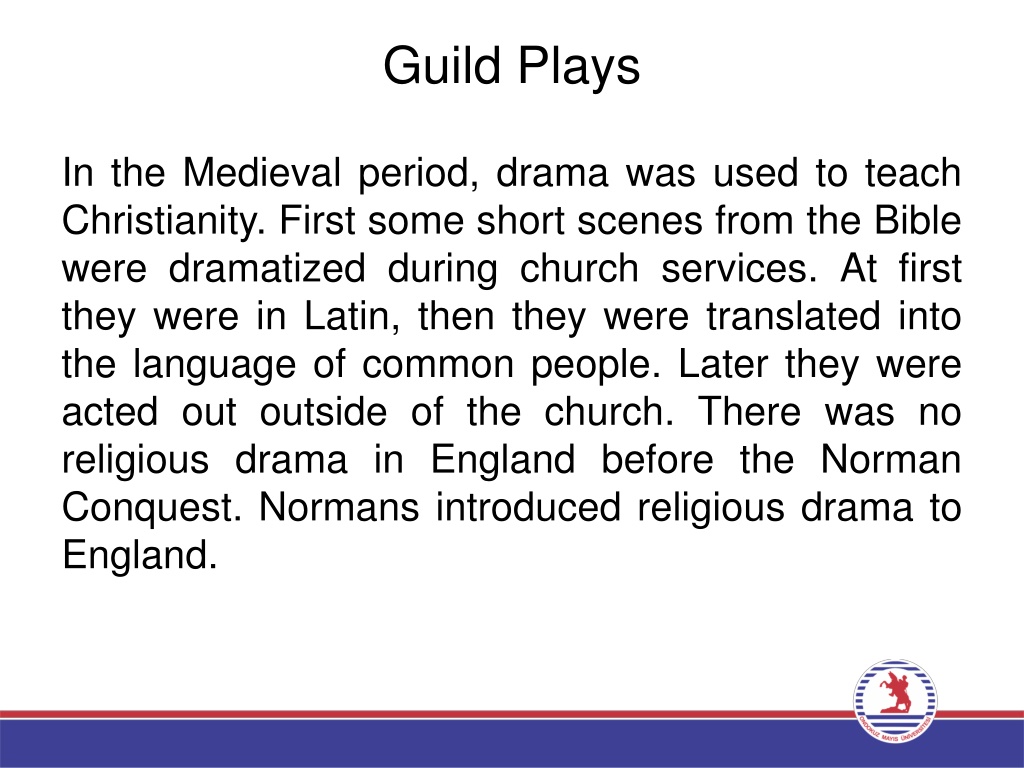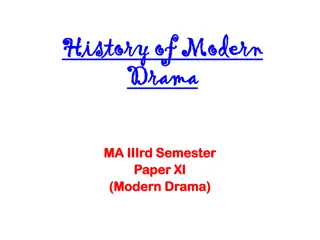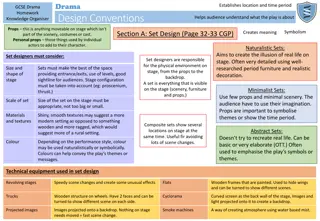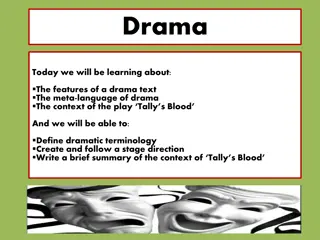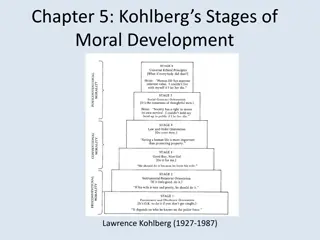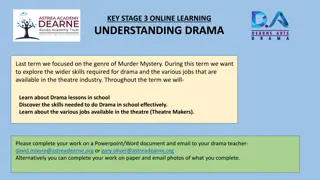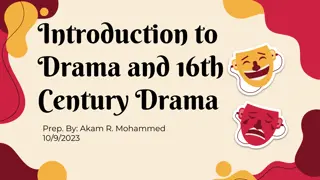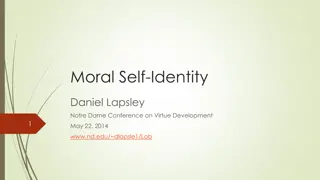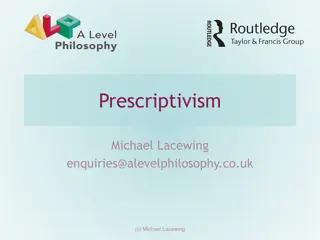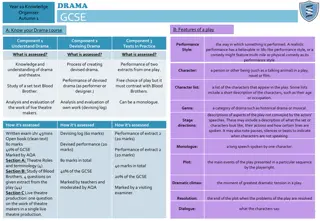Medieval Drama: Guild Plays and Moral Lessons
Learn about the evolution of medieval drama in England, from religious guild plays to morality plays and interludes. Guild plays, including mystery and miracle plays, were performed by craft guilds to teach Christianity through biblical stories. Morality plays like "Everyman" aimed to impart moral lessons through allegory, while interludes focused on ethical aspects of religion. Discover how these theatrical forms reflected the societal values and beliefs of the medieval period.
Download Presentation

Please find below an Image/Link to download the presentation.
The content on the website is provided AS IS for your information and personal use only. It may not be sold, licensed, or shared on other websites without obtaining consent from the author.If you encounter any issues during the download, it is possible that the publisher has removed the file from their server.
You are allowed to download the files provided on this website for personal or commercial use, subject to the condition that they are used lawfully. All files are the property of their respective owners.
The content on the website is provided AS IS for your information and personal use only. It may not be sold, licensed, or shared on other websites without obtaining consent from the author.
E N D
Presentation Transcript
Guild Plays In the Medieval period, drama was used to teach Christianity. First some short scenes from the Bible were dramatized during church services. At first they were in Latin, then they were translated into the language of common people. Later they were acted out outside of the church. There was no religious drama in England before the Norman Conquest. Normans introduced religious drama to England.
By the beginning of 14th century, series of plays were performed once a year in the main cities of England. These series of plays are called cycles. In the Medieval Period, they were called Corpus Christi Plays because they were performed on the feast of Corpus Christi by craft or trade guilds of the towns. Today they are called mystery plays.
Each guild was responsible for a certain story. They decorated carts, and these carts are called pageant.
Mystery Plays:These plays were based on the incidents from the Bible (the Creation, Fall of Adam and Eve, the Last Judgement) Miracle Plays: It was a later development from the mystery plays. Miracle plays dramatized saints lives, divine miracles and the miracles of the Virgin
Both miracle plays and mystery plays are guild plays.
Morality Plays A morality play was not a guild play and it didnot take its subject matter from the Bible. A morality play aims at teaching a moral lesson through allegory. morality play is Everyman. A well-known
About the beginning of 16th century, another form of play called Interlude came into being. Similar to morality plays, Its aim is to teach the ethical aspect of religion. An interlude is a short play performed in the middle of a feast in noble houses. The basic difference between moralities and interludes is as follows: While interludes were performed for nobles by their interlude players, moralities were acted out for common people by wandering players in streets or inn-yards.
